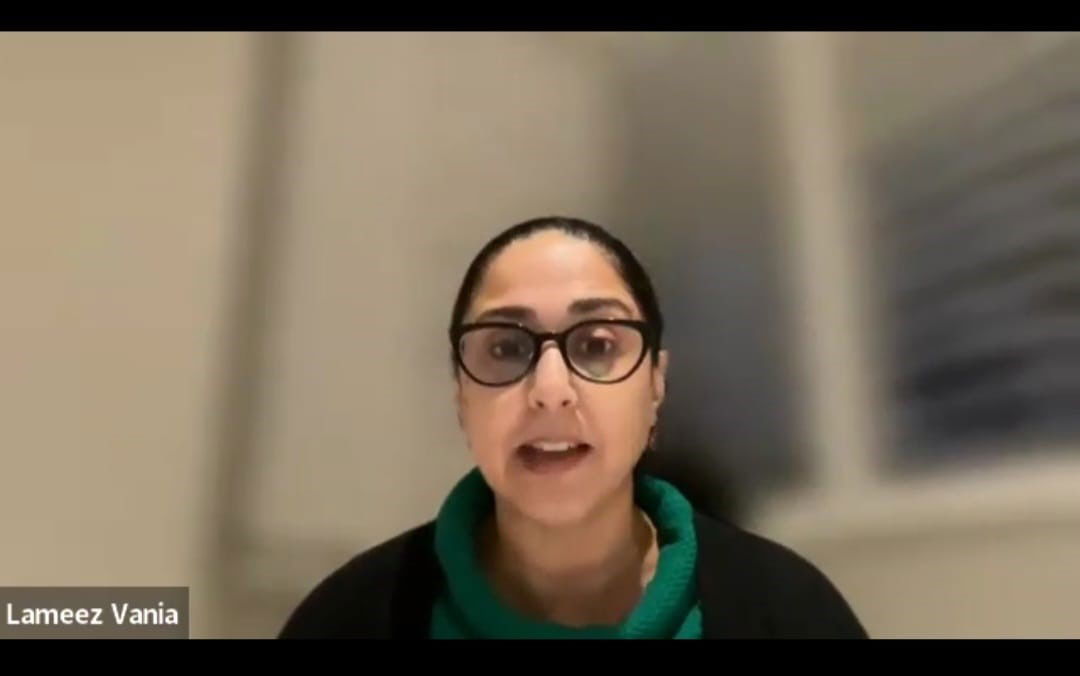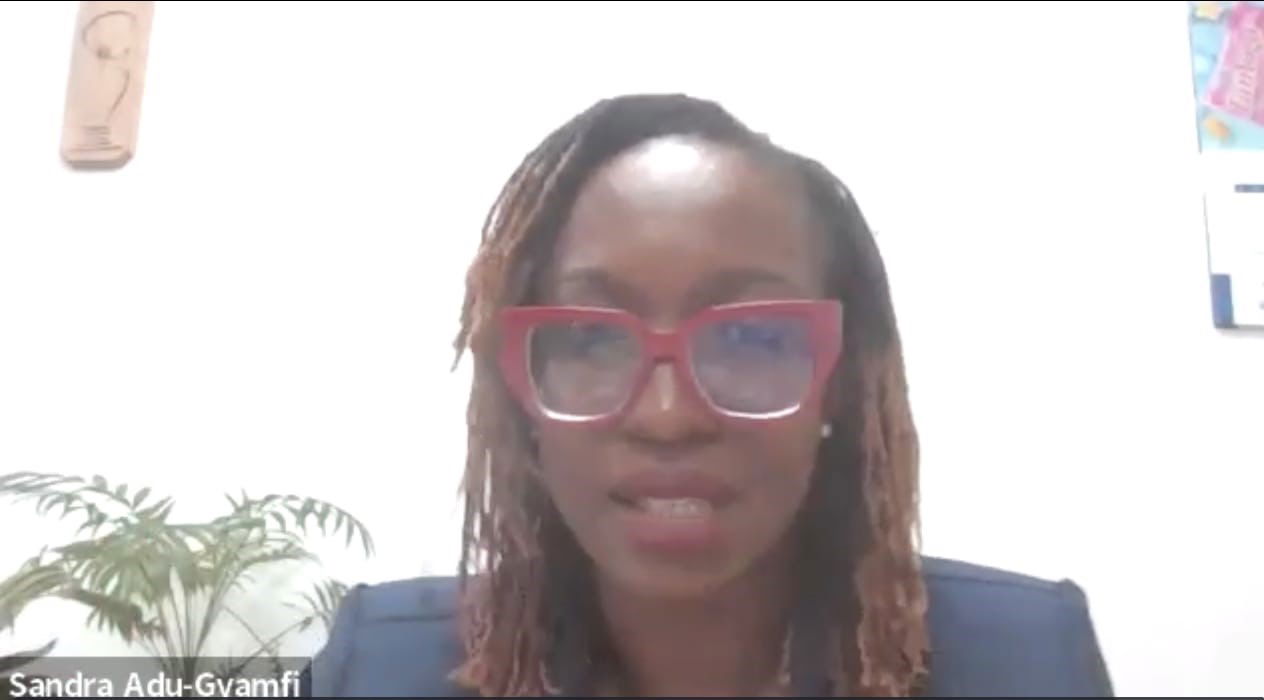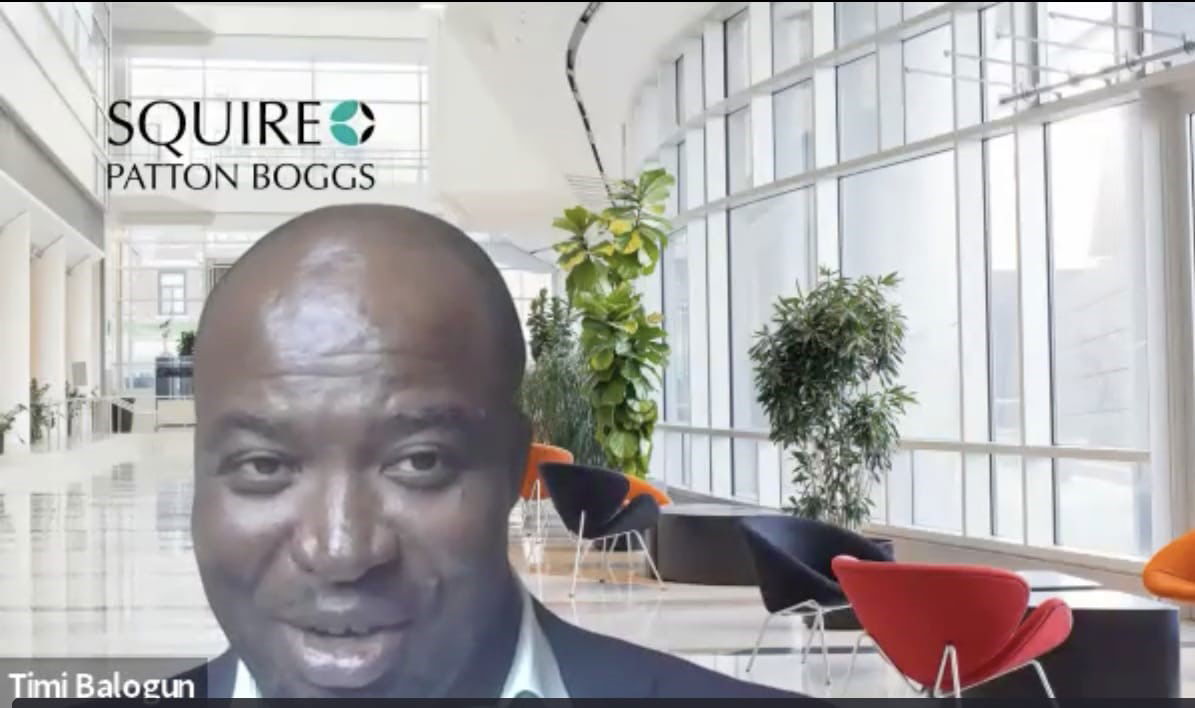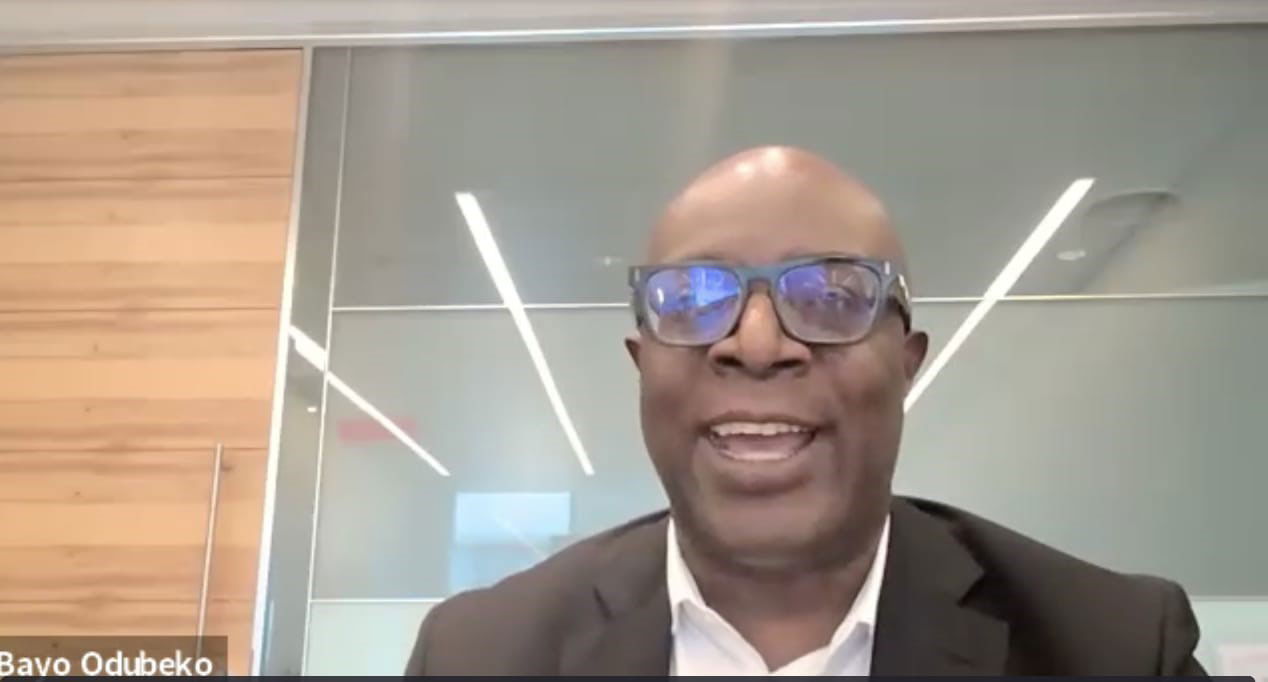Owning the Narrative: Lessons in Global Legal Leadership from the African Corporate and Government Counsel Forum Webinar (ACGC)
In today’s global legal environment, building a meaningful career requires more than credentials, it demands leadership, cultural intelligence, and clarity of identity. These themes were front and centre at the recent ACGC webinar, “Pioneering Your Path in International Legal Leadership,” co-hosted with the Black Counsel Forum (BCF). Moderated by Cynthia Lareine (ACGC) and Sharon Thomas (BCF), the conversation explored how African lawyers can lead globally while staying grounded in heritage and values.
The panel featured an impressive line-up of legal leaders who brought diverse experiences and insights to the conversation. Speakers included Lameez Vania (Head of Legal, Amazon South Africa), Sandra Adu-Gyamfi (General Counsel, Danone – Ghana & Francophone West Africa), Timi Balogun (Partner, Squire Patton Boggs), and Bayo Odubeko (Partner, Norton Rose Fulbright). Together, they reflected on how African legal professionals can lead on the global stage while remaining grounded in their heritage and values.
Set against a backdrop of shifting DEI commitments and persistent misrepresentations of Africa on the global stage, the session invited African lawyers to chart bold, intentional paths rooted in heritage and excellence. Featuring speakers from across the legal spectrum, private practice, in-house counsel, and pan-African legal leadership, the conversation explored what it truly means to lead internationally without losing yourself.
Leadership Shaped by Culture and Experience

One of the most resonant themes from the session was that legal leadership today is less about titles and more about authenticity and aligning your personal values with your professional path. Rather than conforming to predefined models of leadership, the panellists encouraged African lawyers to lead from a place of self-awareness, cultural grounding, and community connection.
Lameez Vania, Head of Legal at Amazon South Africa, shared a defining moment in her career: leading a community engagement initiative that deeply resonated because of her African heritage. "I realised I was speaking to people like me. That connection made all the difference, and it gave me the credibility to shape policy from the inside," she said. Her story underscored how authenticity when fully embraced not only builds trust, but creates opportunities for influence at the highest levels.
Sandra Adu-Gyamfi, General Counsel for Danone (Ghana & Francophone West Africa), echoed this sentiment, highlighting how her fluency in French gave her an unexpected edge. Competing with over 180 candidates for a legal role, she leaned into her unique skillset rather than downplaying it. "It gave me a stronger voice and a wider platform to lead," she explained. She urged junior lawyers to value what they already bring to the table: "You never know how far what you already have can take you or who it might help along the way."
Together, their stories reminded the audience that real leadership is not about mimicking dominant models, but about building from the ground you stand on.

Thriving in Global Markets Without Losing Identity

As the conversation turned toward navigating international legal spaces, the panelists tackled a nuanced challenge: how can African lawyers succeed globally without diluting who they are?
This is more than a theoretical question, it’s a lived reality for many African legal professionals working across borders, often expected to assimilate into existing corporate cultures while quietly outperforming their peers. The panel offered a different model one built on mastery, mindfulness, and unapologetic self-presentation.
Timi Balogun, Partner at Squire Patton Boggs, cut straight to the heart of it. “There is simply no substitute for knowing your stuff,” he said. “Excellence speaks for you. It gives you confidence no one can take away.” For African lawyers who may be navigating both subtle and overt bias, technical mastery becomes more than a professional obligation it’s a strategic equaliser. When you’re excellent, you don't have to over-explain your presence in the room.
Yet excellence, on its own, can’t insulate against exhaustion. Bayo Odubeko, Partner at Norton Rose Fulbright, raised an important reminder: “We need to choose our pace, know our limits, and look out for each other. Burnout isn’t always visible.” In a profession that often celebrates hustle culture, Bayo challenged the myth that leadership must come at the cost of wellbeing. For African lawyers especially many of whom carry the invisible load of representation self-regulation is both a survival skill and a leadership tool.
Sandra Adu-Gyamfi, General Counsel at Danone, added a final layer to this blueprint: visibility. “Have a brag sheet,” she said. “Document your wins and don’t be shy to lead with them. The world won’t always know unless you show them.” For lawyers taught to let the work speak for itself, Sandra’s reminder was both bold and necessary. In competitive global markets, intentional visibility is part of the job not ego, but strategy.

Culture as a Strategic Advantage

While culture is often framed as something to be managed or "accommodated" in professional environments, the panel challenged this passive framing. Instead, they presented culture as a strategic advantage, a lived intelligence that sharpens legal judgment, enhances communication, and increases influence.
Lameez Vania, Head of Legal at Amazon South Africa, articulated this powerfully: “African lawyers tend to be flexible, creative problem-solvers because we work in complex, evolving environments,” she said. “That gives us a unique edge when navigating rigid multinational systems. We know how to adapt and innovate.”
Her point cut to the core of what makes African legal professionals distinct: the ability to operate within ambiguity, to translate between worlds, and to lead with both intellectual and emotional fluency. Whether working across multiple jurisdictions, advising diverse stakeholders, or shaping legal frameworks in emerging markets, African lawyers bring a set of tools that global firms increasingly need even if they don’t always know how to ask for them. The message was clear: culture is not a soft asset — it’s a differentiator. When consciously harnessed, it becomes a source of strategic insight, negotiation power, and professional resilience. It enables African lawyers to do more than “fit in”, it allows them to build bridges, challenge assumptions, and drive innovation in spaces not originally built for them.

The Building Blocks of a Purposeful Legal Career
The session closed with a set of clear, actionable takeaways and a blueprint for African legal professionals looking to lead with purpose on the global stage.
Master your craft: Technical excellence is the baseline. Whether you're drafting contracts, advising clients, or navigating regulatory regimes across jurisdictions, know your stuff. Excellence builds confidence, earns respect, and travels across borders. As Timi Balogun emphasised, there’s no shortcut here. Invest in continuous learning, stay ahead of legal developments, and treat preparation as a discipline, not an event.
Network intentionally: Relationships are your infrastructure. Don’t wait for your dream opportunity to start showing up. Build bridges early and often. Think cross-border connections, not just local; peer support as well as senior sponsorship. Join legal forums, follow up after panels, and nurture relationships with consistency. Strategic networking isn’t necessarily about working the room, it’s rather about showing up in the right rooms, and staying in touch when no one’s watching.
Regulate your rhythm: Ambition without boundaries leads to burnout. Bayo Odubeko's point was a sober one: resilience isn't accidental, it's engineered. Know your bandwidth. Build recovery into your routine. Create space to think, rest, and re-strategize. Self-regulation is about knowing when to push and when to pause. The best leaders aren’t the ones who sprint, they’re the ones who last!
Lead with receipts: In competitive environments, quiet competence often goes unnoticed. As Sandra Adu-Gyamfi advised, every lawyer should keep a “brag sheet”, a running record of wins, impact, and outcomes. Use it to build your CV, shape your personal brand, and own your narrative in performance reviews or pitch meetings. Visibility is not vanity. It is actually an important part of your strategy for professional advocacy.
